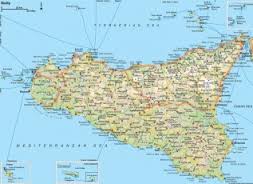The Buddha in Sicily? April 13, 2016
Author: Beach Combing | in : Ancient , trackback
The following appears in a Greek fragment of Empedocles (obit c. 430 B.C.), a Greek Sicilian and the grandfather or godfather of sophism. The problem is that we lack context. All that we know is that he is writing here to a disciple, Pausanias about an important and knowledgeable individual in the past.
There was living among them [who?] a man of surprising knowledge, who had acquired the most extreme wealth of the intellect, an expert in every kind of skilled activity. Whenever he reached out with his whole intellect, he easily discerned all existing things, in ten and even twenty lifetimes of mankind.
Who though is Empedocles describing here. We have a man of knowledge and various Greek names have been suggested were in ancient sources: Pythagoras (obit c. 495 BC), Parmenides (c. 500 BC?) and Xenophanes (c. 475 BC); Pythagoras is the consensus choice. The real problem with this passage though is the question of what on earth it actually means. The mystery man had a great intellect, he was extremely skilled (a kind of Renaissance man?). Then, things degenerate. Reaching out with all his intellect he took everything in… Does this have a mystical side to it (St Benedict perceiving all creation)? The final part about the ten or twenty lifetimes is utterly mysterious: perhaps the easiest way to understand it is that we have here knowledge stretching back ten or twenty lifetimes? Or is Empedocles describing how the information he took in was that which most of us would take ten or twenty lives to struggle with? Or is it something else? Finally, it is strange, at least for Beach, to imagine this individual being a Greek. ‘There was living among them…’ could be among the Spartans or the Athenians etc etc. But it sounds like another people, which would explain the ‘surprising’… In other words, ‘barbarians’ but one of them knew some stuff.
Basnagoda Rahula has suggested, in his doctorate, written in sometimes shaky English, but full of fascinating ideas, that Empedocles is referring to the Buddha here (480 BC-400 BC??). Is it really possible? Well, BR makes a series of ancillary arguments, suggesting that elements of Empedocles’ philosophy come from Buddhism and that some are closely paralleled in Buddhist scripture. This is interesting material, but very difficult to judge. Empedocles does seem to have worried about animal sacrifices, for example: but he also messed around with weather magic.
It is worth remembering that there were weak contacts (economic, religious, philosophical…) between the Mediterranean and India in this period. The temptation to accept that, Pythagorean thought particularly was influenced by the Indian thought doesn’t really stand up though. There is also another problem with BR’s thesis here. Most (but by no means all) modern scholars think that the historical Buddha lived and died at about the same time as Empedocles. In fact, Empedocles may have died before the Buddha. Still there is nothing a priori impossible about the Buddha being described among the Greeks. Any other views: drbeachcombing At yahoo DOT com


